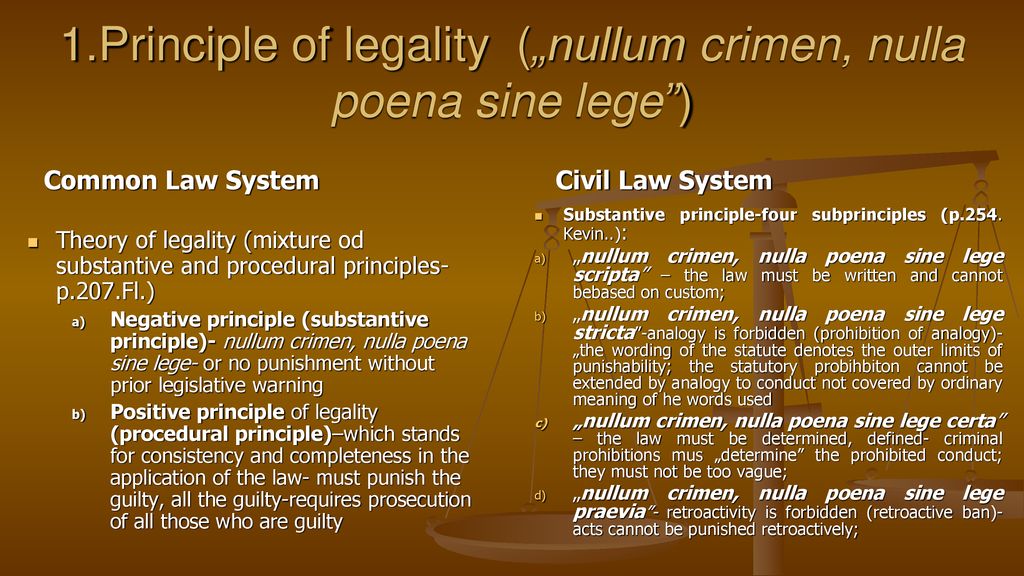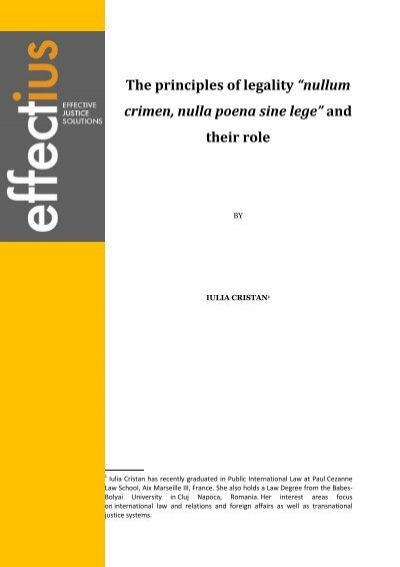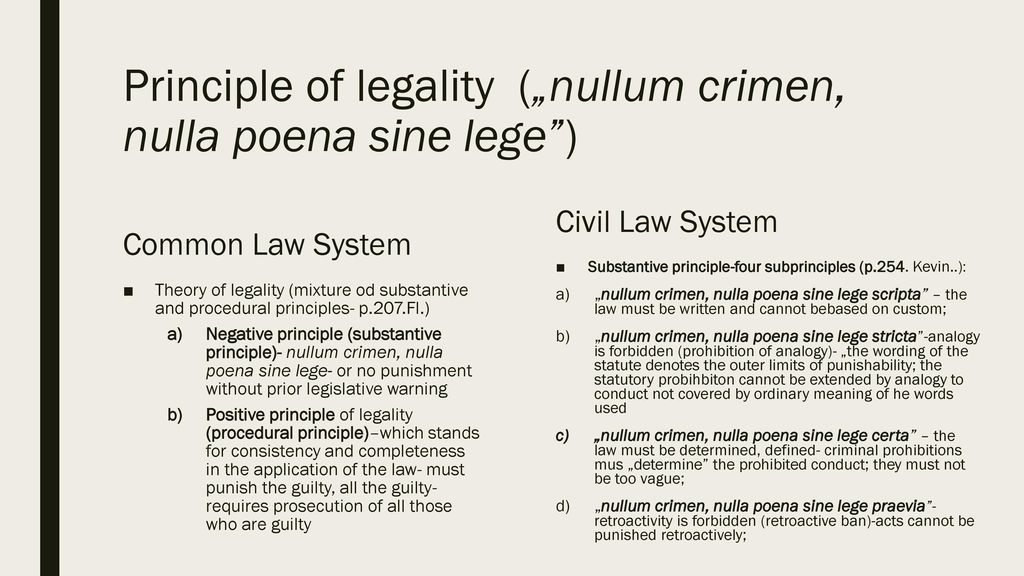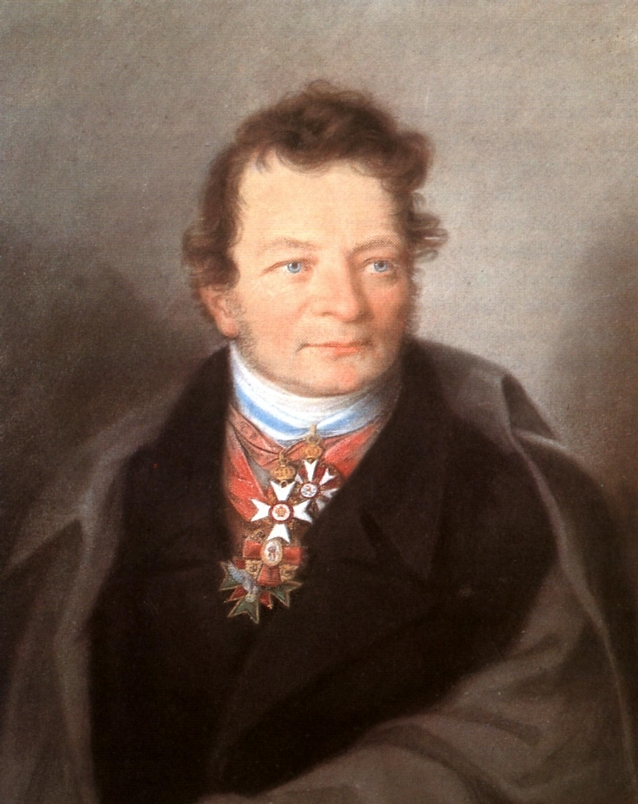Nullum Crimen Nulla Poena Sine Lege

Nullum crimen sine lege is sometimes called the legality principle.
Nullum crimen nulla poena sine lege. Crimen nullum nulla poena sine lege praevia. Nullum crimen sine lege nulla poena sine lege is a latin maxim that means no crime or punishment without a law there can be no crime committed and no punishment meted out without a violation of penal law as it existed at the time. Selon ce principe les incriminations et les peines doivent être créées par une loi. ειδικότερα όμως η φράση nulla poena sine lege καμία ποινή άνευ νόμου αποτελεί ιδιαίτερο πεδίο νομικής έρευνας και εφαρμογής διατάξεων διεθνούς δικαίου.
Egalement appelé principe de légalité criminelle ou principe de légalité des délits et des peines il se retrouve à l article 111 3 du code pénal qui dispose que. This idea is also manifested in laws that require criminal acts to be publicized in unambiguous statutory text. This maxim reads with another maxim i e nulla poena sine lege which means no. This basic legal principle has been incorporated into international criminal law.
This maxim states that there can be no crime committed and no punishment meted out without a violation of penal law as it existed at the time. 1 for example there is the tenet that there can be no crime or criminal punishment without a positive law known in latin as nullum crimen sine lege and nulla poena sine lege. On the gravity of the offence in international criminal law. Le principe nullum crimen nulla poena sine lege est un principe fondamental du droit pénal.
Nulla poena sine lege latin for no penalty without a law anglicized pronunciation. The maxim nullum crimen sine lege literally means no crimes without law 2 it means that without any previous criminal law a conduct cannot come within the definition of crime. ˈ n ʌ l ə ˈ p iː n ə ˈ s aɪ n iː ˈ l iː dʒ iː nuh lə pee nə sy nee lee jee is a legal principle requiring that one cannot be punished for doing something that is not.

















